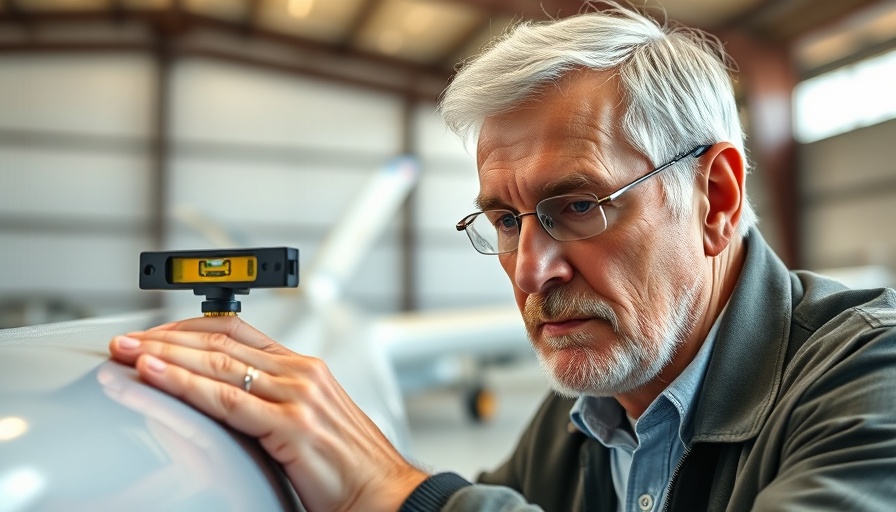
Understanding the Role of Technical Counselors in Aircraft Building
In the world of aviation, embarking on an aircraft building journey often comes with a unique set of challenges. Many young pilots and aspiring builders, faced with complex technical requirements and unexpected hurdles, may feel overwhelmed. Here enters the invaluable resource—the Technical Counselor (TC). Members of the Experimental Aircraft Association (EAA) have access to TCs who are seasoned individuals ready to guide builders on their journey. But not all builders tap into this resource, leaving many to navigate these waters alone.
Myths vs. Facts: The Reality of Technical Counselors
Misconceptions about Technical Counselors can often deter builders from seeking their expertise. One prevalent myth is that engaging a TC will slow down the building process. In reality, early interactions with a TC can streamline a project, addressing potential issues before they become significant roadblocks. In fact, the EAA suggests that spending some time early in the building phase can accelerate the entire process by mitigating challenges that otherwise might surface later on.
Another misunderstanding is that TCs lack specific aircraft knowledge. While they may not know the minutiae of every aircraft, they possess extensive foundational knowledge applicable across numerous building projects. Technical Counselors, who are often experienced builders or certified professionals such as A&P mechanics, can provide clarity on construction practices and regulations, essential for producing a safe and airworthy aircraft.
How Technical Counselors Enhance Your Project
The EAA Technical Counselor Program, which has been supporting builders since 1965, is built on the premise of community and knowledge sharing. With over 1,000 TCs connected to EAA chapters nationwide, builders can find support right in their neighborhoods. Engaging with a counselor is typically free, with financial arrangements for any travel being a private decision between the TC and the builder.
This peer-resource system not only benefits novices but also seasoned builders who may encounter new challenges. The sense of community within the EAA’s framework encourages collaboration, enhancing the overall safety and success of personal aviation endeavors.
Importance of Community in Aviation
A strong aviation community plays a pivotal role in fostering growth and innovation. In many ways, it mirrors the collaborative spirit seen in other fields—think of it as a support network for dreams in the sky. By partaking in local EAA chapter events or connecting with TCs, builders become part of something larger than themselves, learning from shared experiences—an essential aspect of lifelong learning in aviation.
Building Confidence Through Support
Another critical aspect of working with a Technical Counselor is the psychological support it provides. Building an aircraft can be daunting and may induce self-doubt, especially when things do not go as planned. TCs are not psychologists, but they provide moral support by sharing advice and helping builders view setbacks as learning opportunities. This encouragement can significantly boost morale, making it easier to push through tough times and celebrate successes.
Moving Forward: Your Next Steps in Aircraft Building
If you're considering building an aircraft or are already in the process, it’s essential to utilize all resources available, including Technical Counselors. Whether you’re a young aspiring pilot or an adult adventurer rekindling your passion for aviation, tapping into the TC network can enhance your project substantially. Not only will it save you from potential pitfalls, but it also ensures you're building with adherence to safety standards.
Ultimately, the Technical Counselor advantage lies in blending knowledge with encouragement—an invaluable component of the journey to becoming a proficient builder and pilot. Don’t hesitate to reach out to local EAA chapters and embrace the myriad opportunities for support and learning.
As you continue your aviation journey, consider exploring all EAA resources and maybe even stepping up to give back as a Technical Counselor in the future.
 Add Row
Add Row  Add
Add 




Write A Comment